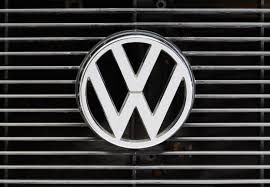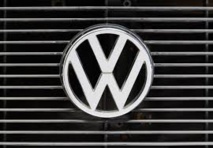"National regulators in the EU should ensure that car manufacturers do provide obedience to EU laws and regulations," - said the European Commission in the statement.
The EC investigation relates to Germany, Luxembourg, the UK, Spain, Czech Republic, Greece and Lithuania. The European Commission is particularly angered by the fact that the last three countries have not even considered possibility to impose fines on Volkswagen for installation of deceiving devices to cars, which allowed purposefully fake level of exhaust gas.
According to EU law, use of devices to mask excessive amount of emissions is strictly prohibited. Governments of all EU countries should ensure compliance with this requirement.
As stated in the explanatory memorandum of the European Commission, only national regulators may authorize sale of a particular vehicle model in their own country, and only they can punish automakers for violation of certain standards.
Nevertheless, said the Commission, authorities of the seven countries have not done so. Besides, national legislation of a number of other countries (Czech Republic, Greece and Lithuania) do not have provisions based on which Volkswagen or other automakers could be brought to responsibility.
The notification from the European Commission is the first step in a procedure, applicable to countries that violate EU law. Countries against which charges were brought, has two months to ensure that they respond.
If the violators do not respond, the Commission may commence proceedings in the European Court in Luxembourg.
It seems that the diesel engine will be forgotten in a just few decades. Since 2012, The World Health Organization (WHO) officially considers emissions of this type as "clearly carcinogenic".
Even Germany, the birthplace of the diesel engine, is now skeptical about possibility of its further application. "The diesel engine is a coal-fired plant of automotive industry", - figuratively said Oliver Krischer, representative German Green Party at Bundestag. He wanted to emphasize that burning of coal is the most harmful form of electricity generation, and the diesel engine is the most harmful kind of the internal combustion engine.
German Greens and Bundesrat (federal land office in Germany) have launched an initiative to generally prohibit registration of new vehicles with all internal combustion engines by 2030. If the Party enters the ruling coalition next year, (which is quite possible), it will first try to cancel tax exemptions for diesel fuel.
The benefits were introduced because combustion of the diesel fuel produces less carbon dioxide than gasoline does (the gas is harmful to the global climate). German lawmakers then approved such benefits, but did not take into account (as opposed to the US lawmakers) other emissions, such as nitrogen oxides and particulate matter, harmful for human health as well. Now, however, these substances cause growing public concern in many countries.
source: dw.de, reuters.com
The EC investigation relates to Germany, Luxembourg, the UK, Spain, Czech Republic, Greece and Lithuania. The European Commission is particularly angered by the fact that the last three countries have not even considered possibility to impose fines on Volkswagen for installation of deceiving devices to cars, which allowed purposefully fake level of exhaust gas.
According to EU law, use of devices to mask excessive amount of emissions is strictly prohibited. Governments of all EU countries should ensure compliance with this requirement.
As stated in the explanatory memorandum of the European Commission, only national regulators may authorize sale of a particular vehicle model in their own country, and only they can punish automakers for violation of certain standards.
Nevertheless, said the Commission, authorities of the seven countries have not done so. Besides, national legislation of a number of other countries (Czech Republic, Greece and Lithuania) do not have provisions based on which Volkswagen or other automakers could be brought to responsibility.
The notification from the European Commission is the first step in a procedure, applicable to countries that violate EU law. Countries against which charges were brought, has two months to ensure that they respond.
If the violators do not respond, the Commission may commence proceedings in the European Court in Luxembourg.
It seems that the diesel engine will be forgotten in a just few decades. Since 2012, The World Health Organization (WHO) officially considers emissions of this type as "clearly carcinogenic".
Even Germany, the birthplace of the diesel engine, is now skeptical about possibility of its further application. "The diesel engine is a coal-fired plant of automotive industry", - figuratively said Oliver Krischer, representative German Green Party at Bundestag. He wanted to emphasize that burning of coal is the most harmful form of electricity generation, and the diesel engine is the most harmful kind of the internal combustion engine.
German Greens and Bundesrat (federal land office in Germany) have launched an initiative to generally prohibit registration of new vehicles with all internal combustion engines by 2030. If the Party enters the ruling coalition next year, (which is quite possible), it will first try to cancel tax exemptions for diesel fuel.
The benefits were introduced because combustion of the diesel fuel produces less carbon dioxide than gasoline does (the gas is harmful to the global climate). German lawmakers then approved such benefits, but did not take into account (as opposed to the US lawmakers) other emissions, such as nitrogen oxides and particulate matter, harmful for human health as well. Now, however, these substances cause growing public concern in many countries.
source: dw.de, reuters.com



















